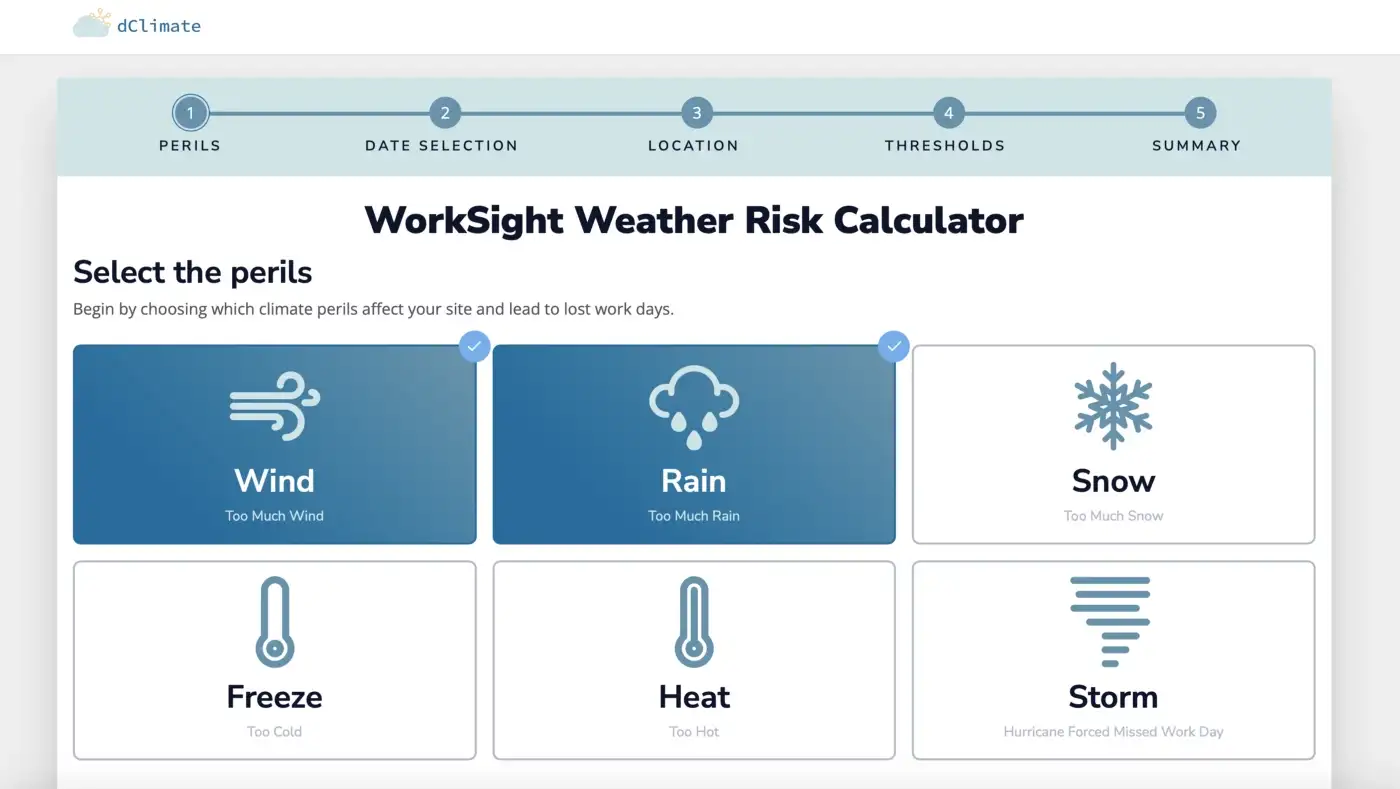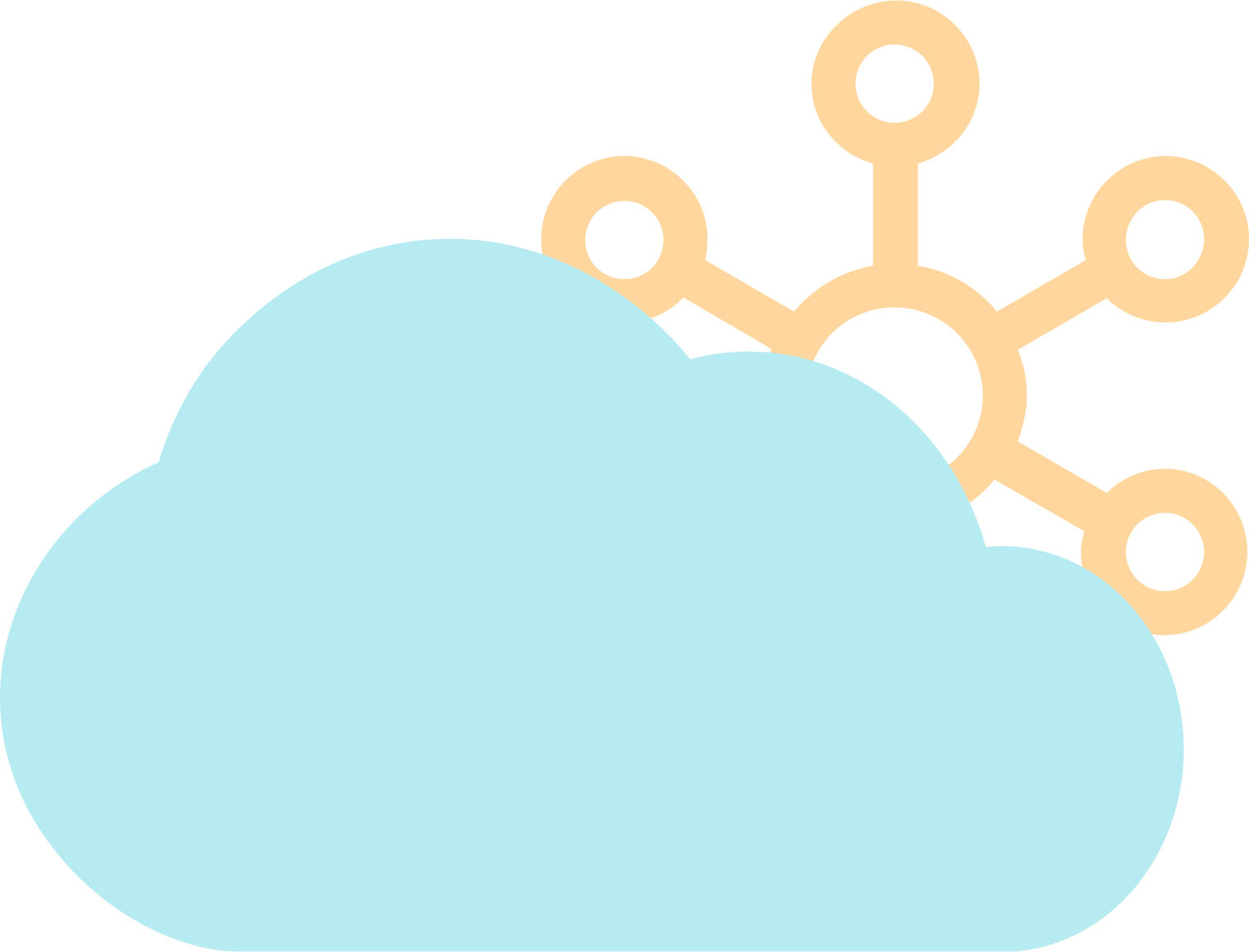Data is Just the Base Layer

Building an Open, Transparent, and Decentralized Climate Data Ecosystem
Do I need a rain jacket? An umbrella? Or perhaps a heavy jacket and boots?
These are common questions that we often look to the weather app on our phones to resolve for us. With the exception of those of us who live in areas that are prone to natural catastrophes like hurricanes, access to good forecasting and weather data is nice to have, but that’s just about it. It is a tool mostly of convenience, not necessity.
For those that rely on cooperation from the weather to sustain their livelihoods and operate safely and efficiently, access to reliable and usable climate data is an essential resource. Farms and businesses in developing nations and rural regions still lack access to basic pieces of key risk infrastructure like insurance and data that are needed to mitigate economic losses and support proactive climate risk adaptation and management.
Too many farms and businesses unfortunately find themselves just one natural catastrophe away from being set back years financially. Consecutive missed crops for a farmer, without a strong insurance policy in place as a safety net can lead to permanent financial ruin.
But it’s not just farmers in developing nations. 70% of the world’s GDP is estimated to be impacted by weather. Every kind of enterprise from businesses large and small, major financial institutions, multinational corporations, and governments at every level are impacted by weather.
Even in developed and wealthier countries like the United States, access to reliable and easily usable data is still made difficult by the fact that the ecosystem remains highly fragmented, opaque, and plagued by stagnation and inefficiency.
The need to adapt to climate change risks and mitigate the physical impacts of climate and weather related disasters is only becoming more urgent. An alarming report recently released by the United Nations finds that it is basically guaranteed that the effects of climate change will worsen in the next few decades, all but ensuring a future where severe and increasingly frequent climate and weather challenges become an accepted and dangerous part of regular life. Businesses and global entities and governments will need to adapt to these changes in climate and weather, sooner rather than later.
Different sectors of the global economy will need not just datasets, but advanced models and analytics to proactively plan for this future. Businesses will need greater access to insurance programs and planning tools. None of this can be built without reliable access to data, forecasts, and models that are immutable, validated, and secure.
From Raw Data to Actionable Insights and Products
For dClimate, which will be the first truly open and decentralized marketplace of its kind, data is just a base layer. What that means is that raw data is just the starting point.
With dClimate, the aim is to incentivize new innovation; new data-driven products like parametric insurance. New catastrophe models for coastal communities that are vulnerable to hurricanes and major storms. Advanced climate analytics for regions that are disproportionately affected by severe heat waves. More accurate and reliable carbon emissions data for ESG programs. And hardware that can be easily deployed in areas of the world like Africa that need access to climate data most urgently, but that lack updated and accurate datasets in many key, vulnerable areas.
Data is just the base layer, it’s what you can build on top of it that truly excites us.
Take for example the construction app that the dClimate team built using the data from our REST API. Construction is one of many major industries around the world that is impacted by weather. Construction projects need good, accurate forecasting and historical data to proactively plan projects around weather to avoid costly project delays. Using our massive data trove, we built an app for this industry with a simple user-interface that will allow project managers to select their perils (rain, wind, etc.) and easily map out within a minute or so, how many work days they are likely to lose based on historical weather data so they can proactively plan projects in advance.

Another use case for how climate data can be leveraged to build useful adaptation products is parametric insurance. A good example is Arbol, which uses dClimate exclusively for its data needs. Arbol’s parametric protection and insurance platform leverages global datasets and smart contracts to make insurance products more accessible, affordable, and user-friendly. Parametric protection pays clients a predetermined settlement when a predetermined trigger (ex. Rainfall, wind speed) is met according to a trusted oracle network like Chainlink. Arbol is actively building parametric protection programs for businesses around the world that are exposed to weather risk using data pulled from dClimate’s extensive, global data trove.
Arbol serves as a strong anchor client for dClimate, but any entity that wishes to build data-driven insurance programs for climate risks can use dClimate as a resource for developing and deploying parametric insurance products.
Building An Open, Transparent Climate Data Ecosystem
The possibilities for what you can build with climate data are endless. Our goal at dClimate is not just to be a decentralized data repository. We want to create a decentralized ecosystem of climate and weather based apps, products, and programs that can help entities globally build institutional resilience against climate change risks.
We envision dClimate as a truly open and transparent ecosystem; one that any participant can contribute to or build with.
While climate data and forecasting is merely nice to have for those of us who may only be occasionally inconvenienced by adverse weather, for millions around the world, data and the actionable insights and tools you can build with it is an essential resource. An essential resource that will be increasingly in demand and needed as climate change risks intensify, and more and more people around the world are severely impacted on a daily basis by weather.
About dClimate:
dClimate is the world’s first transparent, decentralized marketplace where climate data, forecasts, and models are standardized, monetized, and distributed. The marketplace connects data publishers directly with data consumers, making climate data more accessible and reliable. When data providers share data and forecasts with the market it is automatically scored for reliability, which helps consumers to shop for information. In exchange, dClimate creates a simple, direct-to-consumer distribution mechanism to monetize their work.
- Visit our Website, Blog, and REST API
- Read the dClimate Whitepaper
- Join the Community: Twitter | Discord | Telegram | LinkedIn | YouTube
Contact: community@dclimate.net

